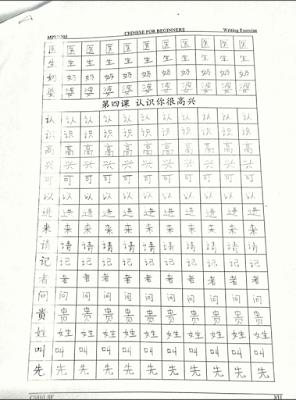

China is recognised as the world’s second biggest economy, so it’s vital that more young people leave school with a good grasp of Mandarin. Languages are crucial for work and life in the global race. Why is the government encouraging schools to teach Mandarin? Schools take this into account when selecting pupils to participate, and also provide appropriate guidance and support to help them manage their work. This is an intensive language programme and it isn’t suitable for everyone. Isn’t eight hours of Mandarin per week stressful for pupils? It’s funded by the Department for Education and delivered by UCL Institute of Education in partnership with the British Council.īeginning in Year 7, selected pupils take eight hours of Mandarin every week, including four hours of classroom-taught lessons, and four hours of homework, to ensure that they’re on track towards fluency.

The MEP is an intensive language programme which will see at least 5,000 school pupils in England on track to fluency in Mandarin Chinese by 2020. What exactly is the Mandarin Excellence Programme? We will be at the forefront of delivering the programme - with support from the UCL Institute of Education and the British Council. Students on the programme will study eight hours of Mandarin Chinese every week - including four hours of classroom taught lessons - with selected groups of pupils beginning from Year 7. The programme therefore provides a fantastic opportunity for students to acquire vital language skills at an early stage - something essential for work and for life in an increasingly connected world. In being the most widely spoken language in the world, Mandarin Chinese is recognised as one of the most important languages for the UK's future. We are one of the first schools in England selected to participate in the Mandarin Excellence Programme - an innovative intensive language programme funded by the Department for Education.īeginning in September 2016, the nationwide programme offers students an unprecedented opportunity in terms of language provision and aims to see at least 5,000 school pupils in England on track towards fluency in Mandarin Chinese by 2020.


 0 kommentar(er)
0 kommentar(er)
